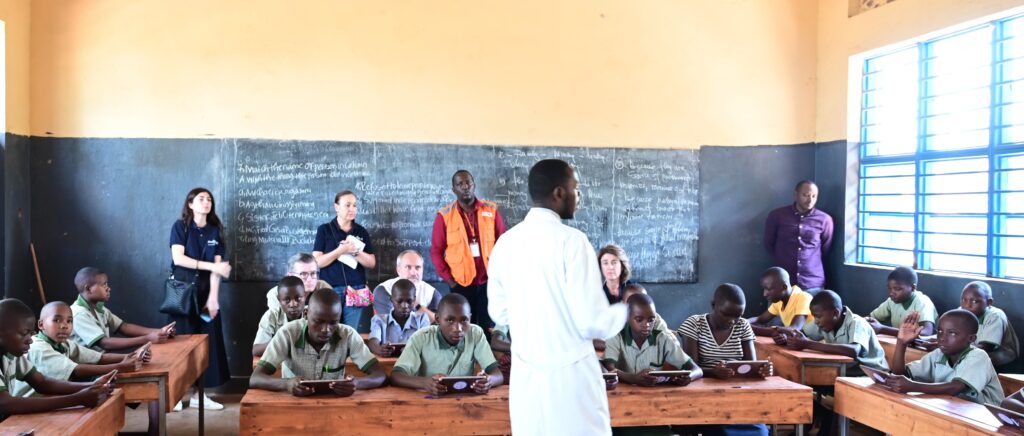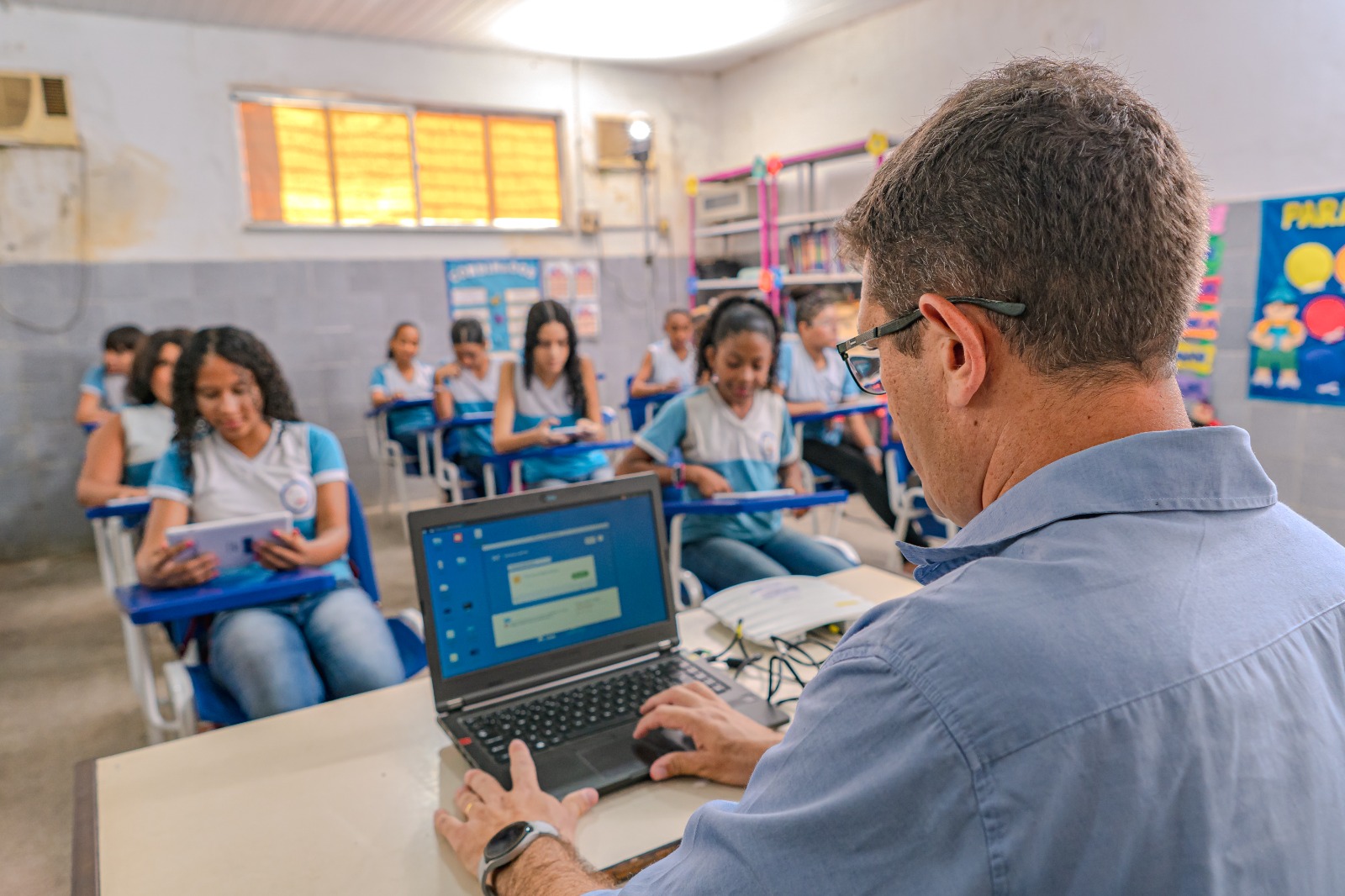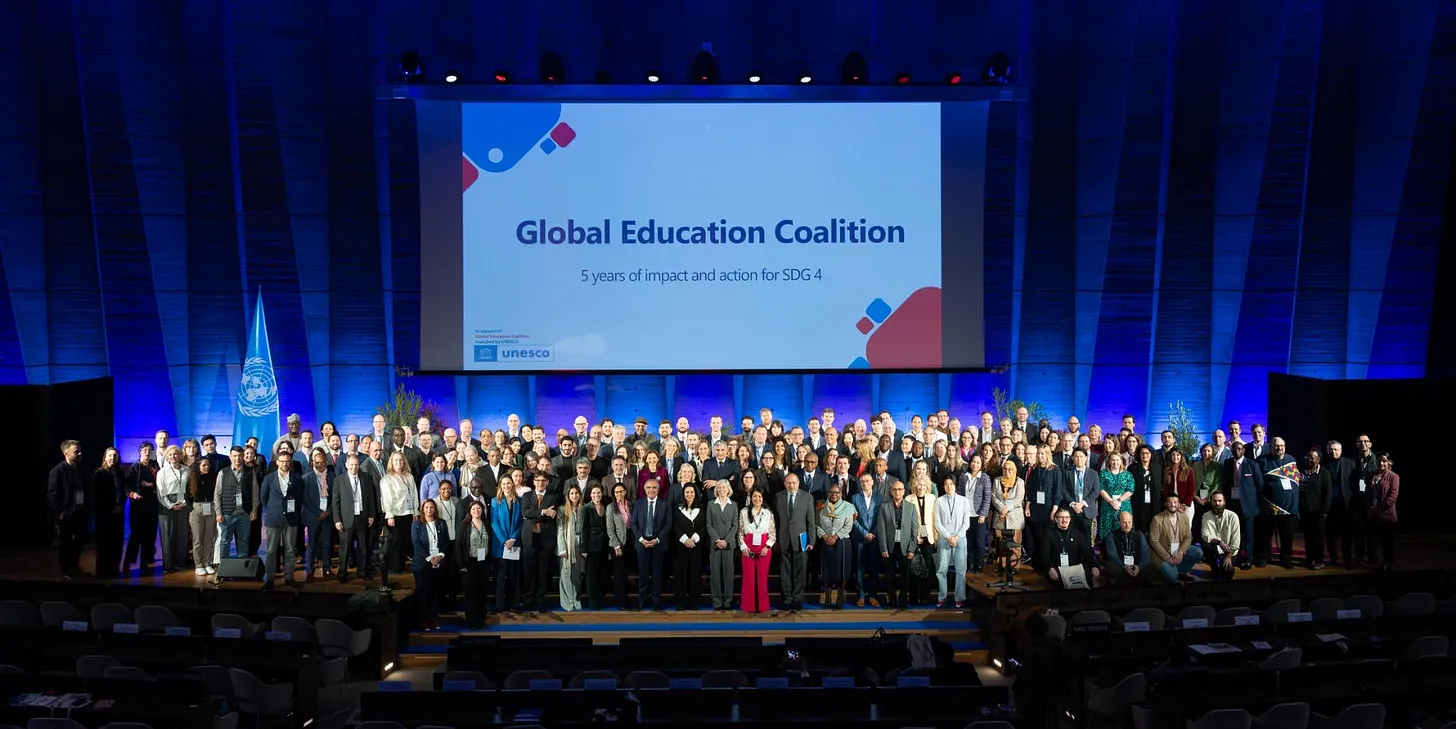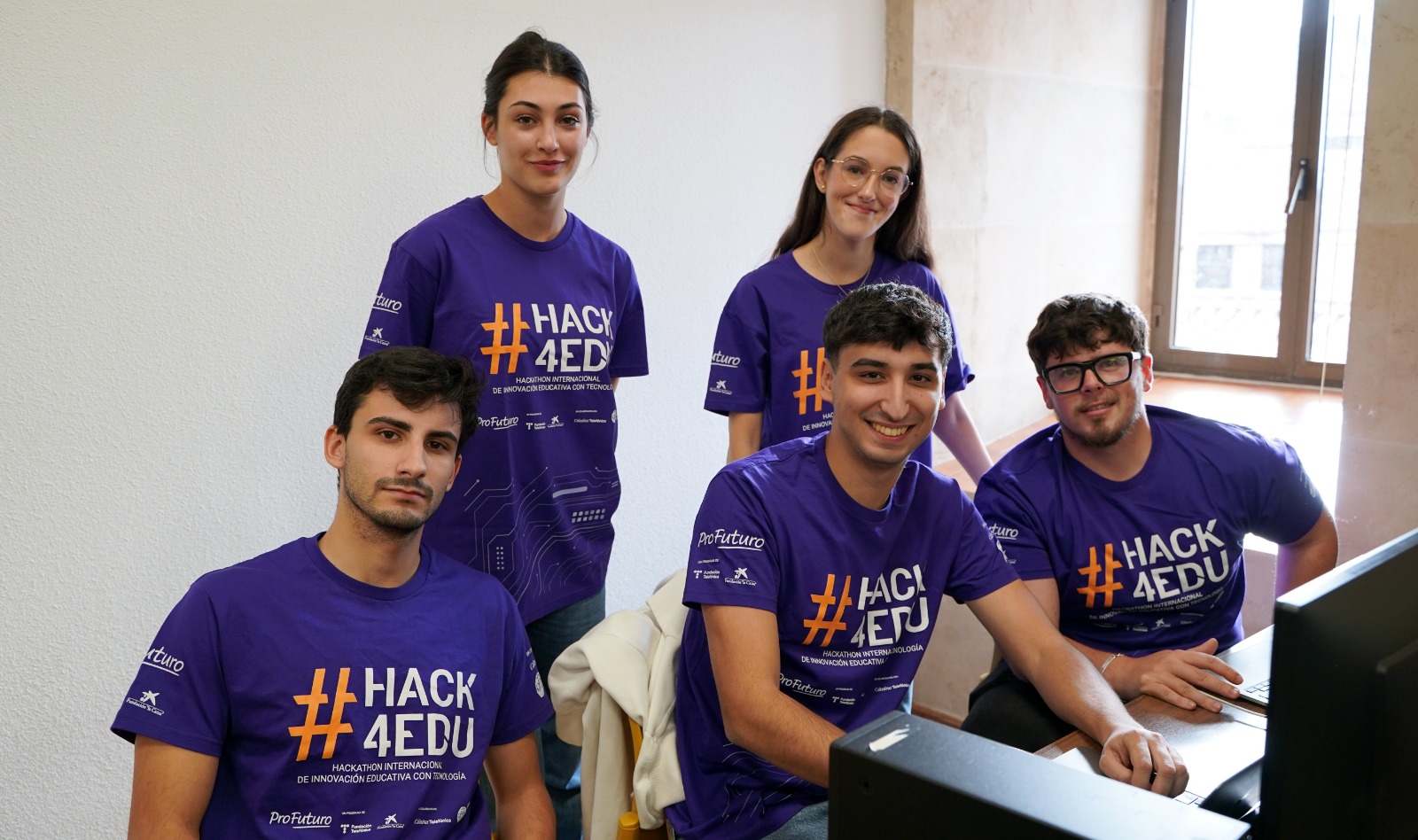The 14 July 2016 marked the official commencement of the ProFuturo Foundation, an entity focusing on technology-based educational innovation in particularly vulnerable schools in Africa, Asia and Latin America which is now celebrating its 9th year of developing projects to improve teacher training and children’s learning.
“The 2024 figures convert ProFuturo,” as its Chairman Juan Ramón Fuertes explains, “into the largest, farthest-reaching Spanish technology-based educational project: involvement in 3,609 schools and direct impact on 262,980 teachers and 941,785 children in 30 countries, 18 in Africa and Asia (Lebanon and the Philippines) and 12 Latin American countries”.
Beyond the numbers, Mr Fuertes underscored “the innovative nature of the program, which is being constantly updated. That’s why we use an open-cod platform, on and offline. What’s more, we’re progressively incorporating Artificial Intelligence into our educational resources, teacher training and managementtools. We oNer training pathways in priority-based skills for today’s world and make use of data analytics to monitor and evaluate the program.”
The goal of ProFuturo is to narrow the education gap by providing a quality education to children in vulnerable environments, with an intervention model based on the impact assessments provided by ongoing monitoring, studies and evaluations.
Magdalena Brier, general director of ProFuturo, highlights this characteristic pillar of the program: constant evaluation. “The evidence returning from ProFuturo students,” she explains, “demonstrates their academic improvement in Mathematics and Language. This is backed by studies conducted in Chile from 2018 to 2023 and in Brazil from 2017 to 2021 in ProFuturo and non-ProFuturo schools, which reflect improvement of 9 points in Mathematics and 8 in literacy, in the case of Chile, and 14 points in Mathematics and 23 points in Literacy in Brazil. We have also seen an increase in the school year pass rate and the number of enrolments; changes in the school planning for the use of technologies; improved motivation, knowledge and digital skills amongst teachers, in terms of classroom innovation, and more commitment from families to the education of their children.”

ProFuturo also collects annual data on the perception of its beneficiaries. “Our most recent large-scale survey taken in 26 countries,” Ms Brier adds, “reports very positive developments. We have surveyed 80,000 students and over 10,900 teachers—from the Philippines to Angola or Kenya, from Mexico to Brazil—and 95% of students told us that their eNort grows with ProFuturo, with 91% saying it improves their learning experience and 90% that they feel more motivated. As for teachers, 84% tell us they have improved their methodological skills, 80% improved their digital skills and have changed their educational activities with technology and digital resources, and 82% feel better motivated as teachers.”
The program is based on a clear premise: without trained teachers, quality education is impossible. To make this happen, it places teachers at the focal point of its intervention model, providing digital tools, active methodologies and training pathways that bolster their work in the classroom. Technology allows them to personalise their learning, motivate their students and facilitate monitoring in real time, even in particularly challenging contexts. Mr Fuertes, the Chairman, takes the example of innovation in the area of teacher training with the courses launched this year on ChatGPT, and the recent agreement signed by ProFuturo with the Center for Curriculum Redesign, chaired by the expert Charles Fadel, which forms the basis of the new courses on AI being developed that are set to be released in the coming months.
A great partner network
For Mr Fuertes, it is important to stress the program’s partner network. “ProFuturo forms an active part of the global educational community. Going forward is only possible thanks to the cooperation of major international allies and local partners, who are the ones implementing the program according to each region’s needs and characteristics. The strength of collaboration also unfolds in ProFuturo’s participation in national and international forums, thus contributing to the global debate on the issues that will lead the way for education in the 21st century.” Among these strategic alliances, he cites organisations such as UNESCO, ACNUR, the Organisation of American States (OAS), the Organisation of Ibero-American States (OEI), Save the Children, World Vision or American Tower.
Mr Fuertes is looking forward to the program’s 10th anniversary and sees a long path ahead for this commitment from the Telefónica Foundation and “la Caixa” Foundation to the technology-based education of the most vulnerable. “We want to make ProFuturo a global reference in the transformation and innovation in education, and keep celebrating anniversaries.”






